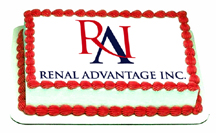The Truth About Work Related Business Expenses
/Regarding mileage, employers are required to reimburse employees at or below the rate specified by the Internal Revenue Service (IRS), and anything beyond the IRS rate may be taxable as wages. The IRS mileage reimbursement rate, which is based on a national average of the cost of operating a motor vehicle including initial purchase/lease cost, repairs, maintenance, fluctuating fuel costs, and cost of insurance, contemplates all reasonable costs associated with automobile expenses and is approved by a Court decision. The employer must show sufficiency if it plans to use a lower mileage rate than the IRS rate, which proves it is reimbursing employees for their actual business travel expenses.
A new rate of 55.5 cents per mile takes effect on July 1, 2011, which was very recently decided upon by the IRS as a midyear increase. The new rate applies to all business travel miles driven from July 1, 2011, through December 31, 2011. Due to constantly changing prices and regulations, employees should always visit the IRS website for the most up-to-date rate.
Since common wage laws (such as those regulating the time and place of earnings payment) do not apply to expense reimbursements, the employer may reimburse such costs on any reasonable schedule. According to the California Supreme Court, employers are allowed to reimburse employees for business travel expenses by paying them a lump sum reimbursement in addition to their wages, so long as the wages and the reimbursement amount are clearly itemized.
There are three approved reimbursement methods clarified by the Court, defined as follows:
Actual Expense Method: this method is fairly self explanatory – it simply requires the employer to keep detailed records of all actual expenses including fuel, maintenance, repairs, insurance, registration, and depreciation. Since this is obviously a very burdensome method, very few employers choose to use the actual expense method to calculate business travel reimbursement costs.
Mileage Reimbursement Method: this method tends to be the most common in use, because it simply requires the employee to track the number of miles driven to perform the required job duties and submit that information to the employer. In this case, the employer would use the IRS rate per mile to repay the employee for business travel expenses. However, because the IRS rate is an approximation of actual expenses, it is less accurate than the actual expense method, so an employee must be permitted to challenge the resulting reimbursement payment.
Lump Sum Payment: in this method, employers pay a fixed amount for business travel reimbursements instead of employees submitting documentation of expenses. The amount is based on the employers' general understanding of each employee's job duties, including the number of miles an employee routinely drives to perform those duties. Although this is a Court approved method, it was specified that it is only appropriate if the lump sum is sufficient to provide full reimbursement for actual expenses, and employees can still challenge the lump sum amount if they believe it is inadequate.
If you believe your employer is failing to properly reimburse you for business travel expenses following an accurate method as described above, you may be eligible to file a claim. Contact the California employment law attorneys at Blumenthal, Nordrehaug & Bhowmik if so.









